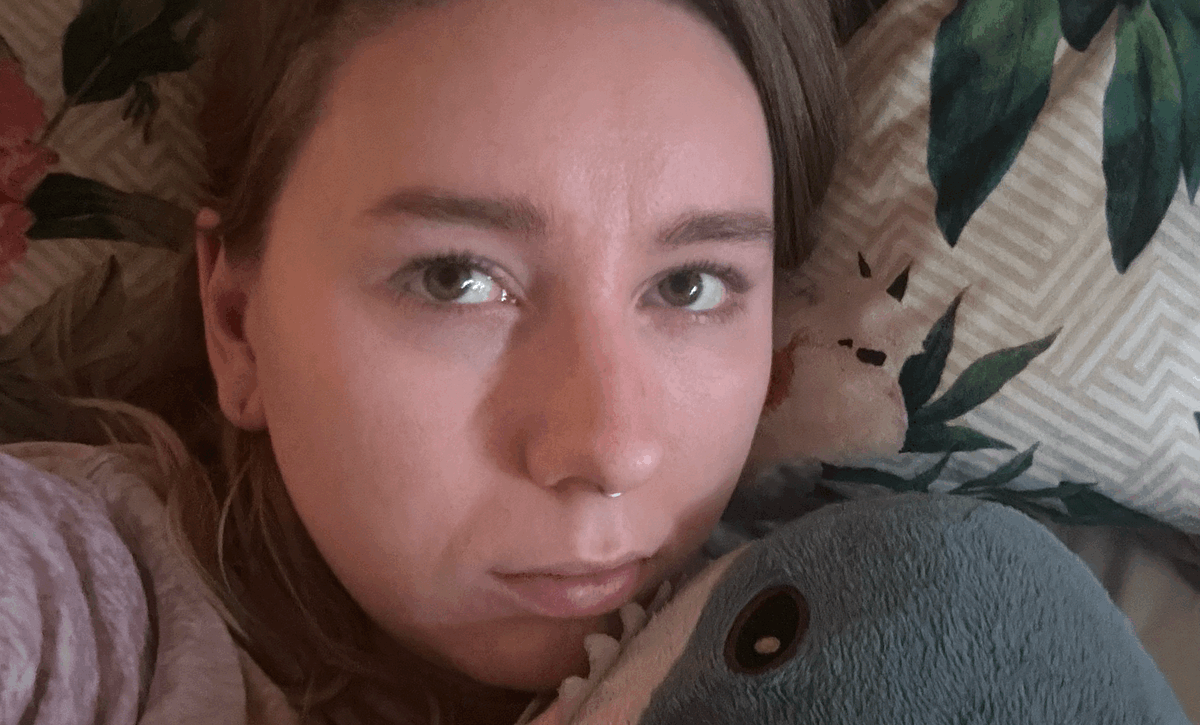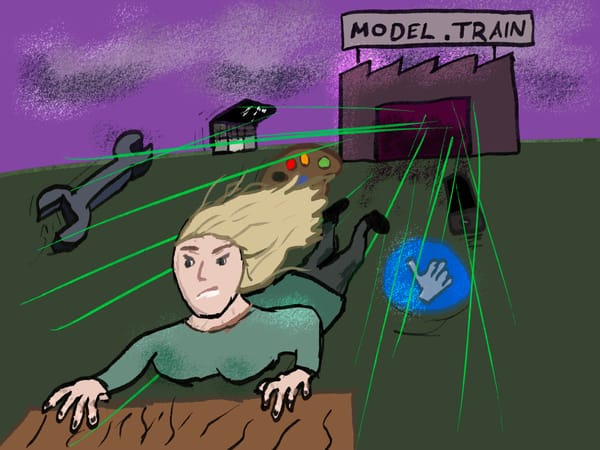Chronic illness communities are rife with medical disinformation
Chronic illness sufferers are constantly exposed to harmful or unhelpful misinformation from grifters trying to take our money.

And... it's really understandable why we are targeted by it.
As someone relatively new to the whole "being chronically ill" thing, I feel like it's not really my place to pass judgement on others. And that's not what I'm trying to do here at all. Long term physical conditions, disabilities, and mental health conditions absolutely suck. I know this from both first and second hand experience. When we become unwell, with no clear idea if or when we'll be back to how we used to be, it's really hard to accept and deal with. It's scary and isolating. I'd be absolutely lying if I said I'd love to be able to take a magic pill that makes all my problems go away.
It's now been over three months since I was unwell with Covid. It got bad enough that I had to visit the urgent care centre a couple of times to rule out any life-threatening complications, one of these ended up being pneumonia. Since then, I've had a constant stream of unpleasant and disabling symptoms that mean I struggle to participate fully in life, the way I used to. I still haven't been back climbing to nail that V5 grade like I wanted to! Fatigue, rapid heart rate and weird pains and dizziness are all rife. Doctors keep sending me off for tests and scans that come back empty. I have felt utterly desperate at times.
During this desperation, I tend to turn to other people dealing with Long Covid online. There's subreddits for all kinds of chronic illness, like:
- Covid "long-haulers" (this was a term used for long covid way before long covid was described in literature)
- Myalgic Encephalomyeltis/Chronic fatigue syndrome (ME/CFS)
- Postural Tachycardia Syndrome (POTS)
- Dysautonomia (dysfunction of the autonomic nervous system)
- And probably some others but I forget.
Online community has been radical during the pandemic, since it means that people dealing with the same conditions are able to find each other and compare notes and coping strategies... months or even years before doctors catch up.
But what I see scrolling around and looking for advice is just... kinda heartbreaking honestly. There's a lot of people who feel let down and ignored by the health system. People aren't having their symptoms taken seriously and waved away. And from that, people will turn to alternative remedies and paths. Users will share their supplement stacks, consisting of a whole bunch of vitamin and mineral tablets, herbal tinctures, even limiting their diet to quite outrageous lengths. The length that people will go to in an attempt to feel better really illustrates how long covid is seriously debilitating.
Naturopaths, functional and holistic medicine
A common thread amongst people in the community seems to be turning towards practitioners that seem to "shun" general medicine. They will share recommendations from their "naturopaths", "functional medicine" doctors, or even chiropractors. And these seem to be really varied in what gets shared. It can sometimes be things like "herbal remedies" that seemed to "cure inflammation", supplement "protocols" that are published on Amazon rather than in scientific journals, all the way to suggesting certain pharmaceuticals used in a different way to originally intended.
It's horrible that these "doctors" (they don't even have full medical training a bunch of the time) will pop up and grift desperate, hurting people out of their money. They promise the world and deliver plant oils. They convince patients that yes, actually they are smarter than the average person by sidestepping conventional medicine and paying loads of money for herbs that are probably unhelpful at best.
You see so many people who end up getting things like vitamin shots and antibody therapy infusions and they swear that they feel better at the end of the course. But you know what normally ends up being the true healer? Time and rest.
Low-Dose Naltrexone
This is a fascinating medicine that seems to pop up time and time again in online spaces. Naltrexone is mainly used to treat opioid abuse and alcoholism, by making the cravings and positive effects from taking the drugs less impactful. It works by blocking opioid receptors in the brain, which mange pain relief and feelings of euphoria.
Low doses of this medicine has been used and recommended across chronic illness communities for a little while, and these doses are really low. Like, 5mg versus 50mg. It was originally offered in the 80s by one doctor to help treat immune system dysfunction in people with AIDS, but always seem to show minimal if any improvement, on quite small trial groups.[^1] And claims of what this medicine can do are often exaggerated.[^3]
And even when this can help with chronic illness, the side effect profile is vast. Common side effects include anxiety, pain, excess sweating, mood changes, nausea, sexual issues and insomnia, to name a few.[^2] So the cure can often turn out being worse than the original problem.
Alternative/"functional" medical doctors seem to make a lot of money by running clinics and offering this stuff. It's tricky, because there might actually be some promise with this medicine? But we definitely need deeper research into this stuff. And I'm honestly a bit tired of it being touted as a miracle cure for a bunch of different illnesses.
"Chronic" Lyme and EBV
Something that seems to come up often in Long Covid circles is the concept of "chronic" Lyme disease and "chronic" Epstein-Barr Virus disease (the cause of glandular fever, or infectious mononucleosis). EBV is quite a fascinating virus, as it will permanently infect the B-cells in your lymph nodes.[^4] About 90% of the world's population have it, and you usually catch it in childhood where it doesn't really cause many symptoms. Sometimes you catch it a bit later on in in early life and this is what's known as "glandular fever". This can sometimes reactivate and make you unwell, usually if you're already immunocompromised (if you have HIV/AIDS for example).
"Functional medicine" doctors will sometimes test for this through a set of different antibodies, to suggest that it is a cause of someone's chronic problems. It's... quite rare.[^5] There's a lot of research happening in this area and how it affects people with conditions like ME/CFS. However, there doesn't seem to be a proven, effective treatment for this quite yet. Testing for these antibodies is only really helpful for people who do have immune system problems, but otherwise it will normally tell you what you could probably already guess: yes, you probably have a latent EBV infection. And no, vitamin drips, antibiotics, low dose chemotherapy, are not really going to help and the side effects from these will often be worse than what they're attempting to treat.
Lyme disease is also really interesting! It's a bacterial infection that can cause long-term, lingering symptoms, similar to the long covid or ME/CFS that I seem to be dealing with. However, after a couple of weeks of antibiotics, the bacteria is gone and any remaining problems isn't related to you being actively infected. This page published by Quackwatch has lots of really useful information on the topic. Again, these doctors promising to provide "holistic" care for chronic illness will do an antibody test for Lyme Disease, see that you've been infected with it at some point, and then declare that "Aha! It's chronic Lyme!". They will then put you on long term antibiotics, which is simply just obliterating your gut biome for no good reason.
The frustrating truth with long covid, ME/CFS, and other similar illnesses, is that there's so much we don't know about them. There has been some research and funding, but it's definitely far from enough. In the NHS for example, they used to treat ME/CFS with "Graded Exercise Therapy" where you are encouraged to push yourself through exertion to get better. It thankfully is no longer recommended, as it often makes people's conditions worse.[^6] The best we can do right now, is to carefully pace and manage our energy, try to cope with what we have right now, treat any co-occurring problems as they show up, and slowly build ourselves back up, no matter how long it takes.
Just as a result of what we deal with on a daily basis, chronically unwell people are resilient as fuck. Every day we get up, not knowing how bad our symptoms will be or when we'll finally be back to normal. And yet we still face the day, we still rest, we still get by somehow. It's not something we should have to be, but the fact is, we are. And I think that's something to hold onto tightly.
[^2]: BNF: Naltrexone side effects
[^3]: ALSUntangled No. 8: Low dose naltrexone for ALS
[^4] The puzzling Virus that infects almost everyone - The Atlantic
[^5]: Chronic Active Epstein–Barr Virus Disease
[^6]: ME/CFS - NHS



